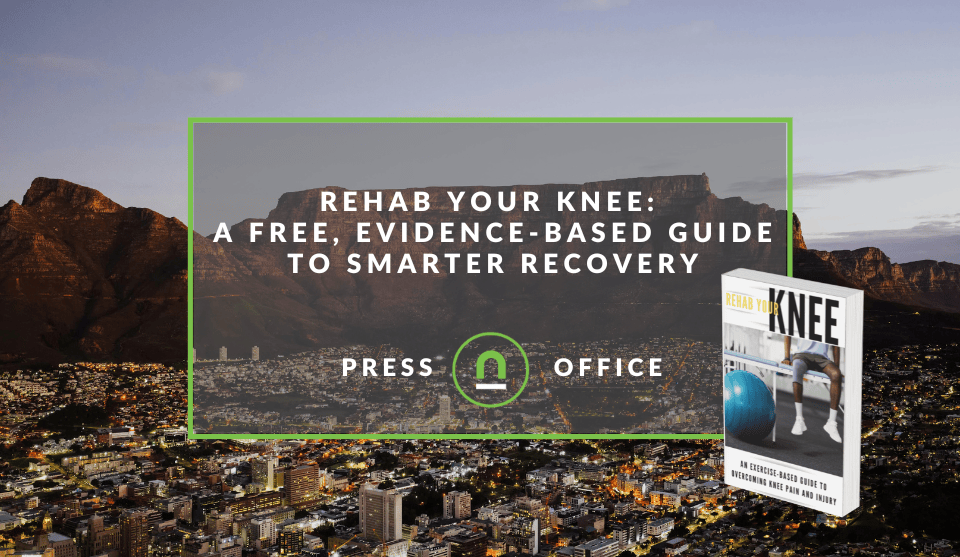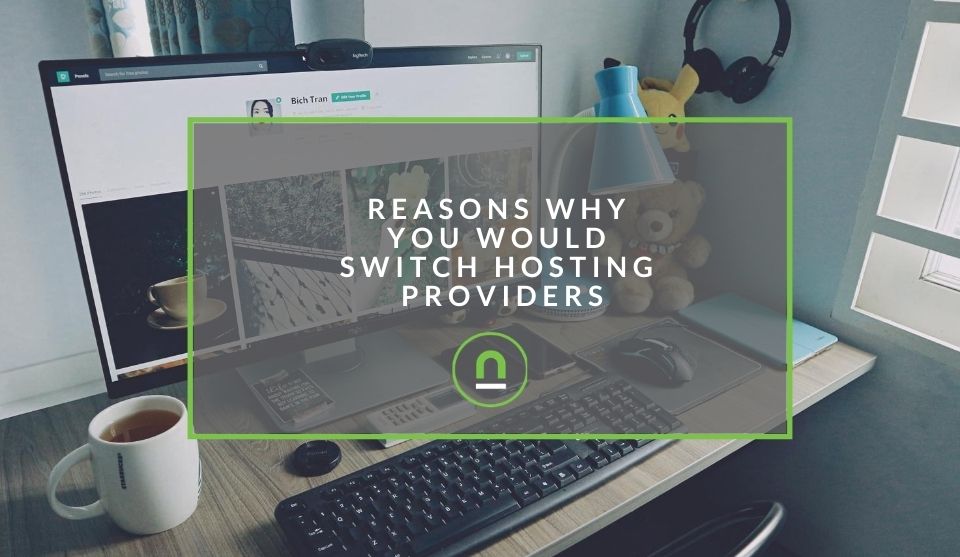Recent posts

Athletes
Peptide Use for Muay Thai Training
23 February 2026

Money Talks
A Guide To Mobile Trading Apps for South Africans
19 February 2026

Press Releases
Rehab Your Knee: A Free, Evidence-Based Guide to Smarter Recovery
12 February 2026

Money Talks
XRP vs. Stablecoins: Which Is Better for Cross-Border Payments in 2026?
28 January 2026
Popular posts
Extravaganza
Trending Music Hashtags To Get Your Posts Noticed
24 August 2018
Geek Chic
How To Fix iPhone/iPad Only Charging In Certain Positions
05 July 2020
Extravaganza
Trending Wedding Hashtags To Get Your Posts Noticed
18 September 2018
Money Talks
How To Find Coupons & Vouchers Online In South Africa
28 March 2019
Reasons Why You Would Switch Hosting Providers
15 August 2020 | 1 comments | Posted by Che Kohler in Geek Chic
Web hosting is not something many smaller sites think about as a standard shared hosting server offers more than enough to manage your average website. It's only as you expand your range of services, products or gather a large amount of daily traffic and daily active users, that you will start to see the frailties of either your hosting option or your service provider.
Many large hosting providers that aren't resellers have a range of options which allow you to remain in their ecosystem and upgrade your system as you need it. However, the competitive world of web hosting does see other providers specialise in specific solutions and undercut one another in price to secure clients.
Switching your hosting provider
Deciding to leave your current hosting provider in favour of one that better fits your needs is a difficult decision. One of the things that often weigh on webmasters when considering making a change is having to move a website from one host to another or reviewing various hosting providers first.
Thankfully, switching hosts with minimal or even no downtime is possible, and we do see them allowing migration tools to make it easier. The key to any migration is to research the process before you begin, plan your move carefully, and get your new host involved in the process to make the transition as seamless as possible.
Why you would want to move
A hosting provider is your first point of contact when creating a site and is the service that hosts all your website content. They serve your data to visitors and ensure your website remains up and loads as smoothly as possible. A reliable web hosting provider needs to provide a service that meets the following requirements; if not, you may need to consider moving your business elsewhere.
1. Your site's loading times are slow
According to website studies, speed is a significant user experience, and website ranking factor and the milliseconds count. If your website takes more than two seconds to load, roughly 40% of your audience is going to leave.
The speed goes double for eCommerce sites as 30% of shoppers are even more demanding and want sites to load in under one second, or they are not interested in shopping or also returning to your site.
Hosting is one part of speed, and it's essential to look for potential issues that are slowing your site down more than necessary. Even if your website doesn't feel unusually sluggish, there could be issues affecting other users on different devices or connections.
- Poor server configuration
- Too many users on the same server
- A lack of strategically placed data centres
The easiest way to figure out if this is an issue for your site is to run multiple speed tests and average their results.
2. A sluggish CMS
Your CMS is the interface through which you interact with your sites, and depending on the setup, you may have one or serval. The CMS is a backend system, and it could also be an access point for one webmaster or by staff.
We've already established how frustrating it is for users to deal with slow-loading sites, and the same applies to you and your dashboard; it hits productivity and makes tasks harder to complete not to mention frustrating.
Depending on the CMS you're using you may want to move to a provider that has direct support for that codebase.
3. Too much downtime
I don't think I have to tell you what downtime is but let's go through the problems it can cause.
- It leads to a loss of traffic.
- You miss out on potential customers and conversions.
- An unavailable site makes you look unprofessional.
Fortunately, most web hosts these days are excellent at minimising downtime. The industry standard for websites shouldn't be more than one-tenth of a % of the entire year down (about nine hours total), and it's possible to reduce that even further.
So if your host reaches a 99.00% uptime, that's not necessarily good enough. There are several tools available for measuring downtime, and If your site's actual uptime is less than 99.90% after a few months of monitoring, you may want to switch hosting providers.
4. High hosting costs
Host providers have several packages to suit a broad spectrum of websites. Of course, more expensive plans tend to boast even better performance and more features (especially as your site's traffic increases), but you should only ever pay for what you need and remember to think of:
- Long-term savings
- More expensive doesn't always mean better
In some cases, you'll need something more comprehensive than a basic plan, but you can always upgrade at any time. The logical move is to choose a provider with a good cost-to-performance ratio, and upgrade only when you need the added performance or extra features.
Ensure you have multiple backups
When migrating your site, it can be easy to miss out on copying over some files, especially as your site is getting on with age, there are plenty of files that have been stored over the years. Review all the pieces of your website and ensure you make backups of every bit of data on your provider's servers.
Once you have your data, you can move it over in a process that often looks like this:
- Copy website files and database from your existing hosting account.
- Upload website files and database to your new hosting account.
- Test your website on the new server.
- Point domain at your new host's name servers.
- Wait a few days to make sure that the new name server configuration has propagated throughout the DNS system.
- Close your old hosting account.
Conclusion
Moving from one hosting provider to another can be a daunting task with plenty to consider, and the risk of extended downtime, loss in traffic and sales. However, now that you know the steps necessary to navigate this transition successfully, you're ready to make an informed decision about how to proceed.
If you're stuck with a host whose services you've outgrown, or if you're just ready to try out a more robust feature set, don't let the process of moving a website stand in your way or remain with a provider for the sake of avoiding a migration.
Tell us your story
Are you planning a hosting migration? Have you migrated your site in the past? How did it work out for you? Let us know in the comments below
Contact us
If you would like us to your site's migration or want us to create a marketing strategy for your site or want to know more about digital marketing for your business, then don’t be shy we’re happy to assist. Simply contact us
Are you looking to promote your business?
South African Business owners can create your free business listing on nichemarket. The more information you provide about your business, the easier it will be for your customers to find you online. Registering with nichemarket is easy; all you will need to do is head over to our sign up form and follow the instructions.
If you require a more detailed guide on how to create your profile or your listing, then we highly recommend you check out the following articles.
Recommended reading
If you enjoyed this post and have a little extra time to dive deeper down the rabbit hole, why not check out the following posts on web hosting.
- HTTPS Migration Check List For The Best Results
- WordPress Migration: How to successfully move your website to a new host
- Everything you need to know about web hosting
- How To Decentralise Your Blog
- Does Web Hosting Affect SEO?
Tags: Web Hosting, Guest Post
You might also like
Africaworks Accelerates The Rollout Of Real Estate Investment Platform
20 January 2026
Posted by Nicolas Teisserenc in Press Releases
AWIP accelerates the rollout of its urban real estate investment platform in West Africa, raising €4m and fully deploying it into two off-market acqu...
Read more80% of Gen-Zers Would Marry an AI
19 January 2026
Posted by Steph M in Press Releases
Experts reveal why AI relationships are getting serious, and the reasons why 4 in 5 young people are open to marrying ai as human dating becomes too ...
Read more{{comment.sUserName}}
{{comment.iDayLastEdit}} day ago
{{comment.iDayLastEdit}} days ago
 {{blogcategory.sCategoryName}}
{{blogcategory.sCategoryName}}


